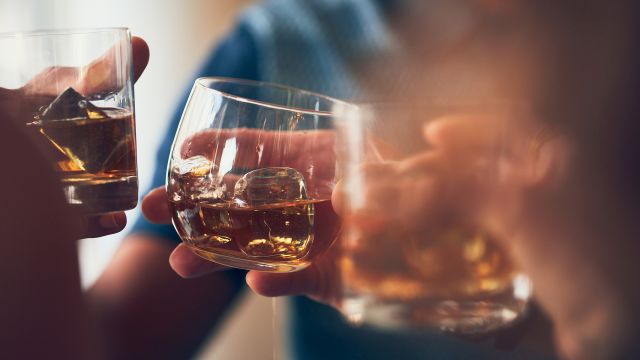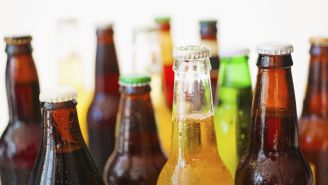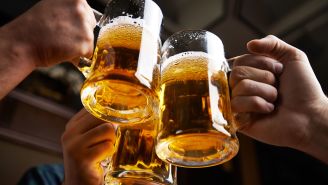Updated on September 16, 2022.
Drinking alcohol has long been associated with a host of health woes, from injuries and accidents to depression. But only 4 out of 10 Americans realize it also increases your risk of cancer, according to the American Institute for Cancer Research (AIRC).
“Cancer isn’t just one disease; it’s a bunch of diseases,” says Keith Roach, MD, associate professor in clinical medicine in the division of general medicine at Weill Cornell Medical College and New York Presbyterian Hospital. “There are many cancers clearly linked to alcohol. Pancreas and liver are the most well-known types.”
In November 2017, the American Society for Clinical Oncology (ASCO), issued a statement about the risk alcohol poses for developing a wide range of cancers, including cancers of the breast, esophagus, stomach, throat, mouth, colon, and rectum. The statement noted that moderate use significantly increases risk, with the greatest risk posed by heavy, long-term use.
Dr. Roach says ASCO’s statement was “not really a surprise because excess alcohol use does bad things to your immune system and it also causes direct harm to tissues.”
Higher risk of certain cancers
Imbibing too much and too frequently increases the risk of some cancers in various ways. For example, excess drinking generally raises your chances of breast cancer. One potential reason: It can boost estrogen levels, which is associated with a higher breast cancer risk. Alcohol also increases your odds of developing cancer in your upper digestive tract—in the larynx (voice box), esophagus, throat, or oral cavity—because the alcohol comes into direct contact with these organs.
It’s important to remember that the more you drink, the higher your cancer risk overall. But ASCO warns that there’s a risk of cancer even if you are a low-to-moderate drinker.
Is any amount safe?
The only way to eliminate your risk of developing an alcohol-related cancer is to abstain. If you don’t drink, don’t start.
But what about those of us who enjoy a glass of wine or two from time to time? Many experts, including those at AIRC, recommend limiting alcohol consumption to one drink per day for women and two per day for men. Roach says these levels are probably fine from the standpoint of optimal health.
You may have heard that red wine is good for your heart, but research hasn’t established a cause-and-effect benefit. “Don’t think that if one glass of wine is making you feel good, and may possibly have some benefit to your heart, two or three glasses or more will have more benefit,” Roach explains.
Be smart about drinking
These two simple strategies can help you regulate your alcohol intake—and perhaps lower your risk of some cancers:
Know how much alcohol is in your beverage. A standard alcoholic drink does not necessarily correspond to the amount you pour for yourself or are served. One standard drink is a 12-ounce regular beer (which is about 5 percent alcohol), a 5-ounce glass of wine (about 12 percent alcohol), or 1.5 ounces of 80-proof spirits, like vodka, whiskey, and tequila (about 40 percent alcohol).
Drink with food. Eating slows down the absorption of alcohol to some extent, Roach says. It allows your body to more safely detoxify the alcohol before your blood levels get so high that it becomes toxic to your brain. If you’re going to drink, eat something at the same time.
“Everything is a poison in the right dose,” Roach says. “Alcohol is a poison at high doses.”
And like many poisons, it may be that there are still harmful effects at levels that are not obviously toxic. “This is particularly true with cancer, which takes years or decades before people develop signs of it,” he says. “It’s wise to be cautious with our alcohol intake."







